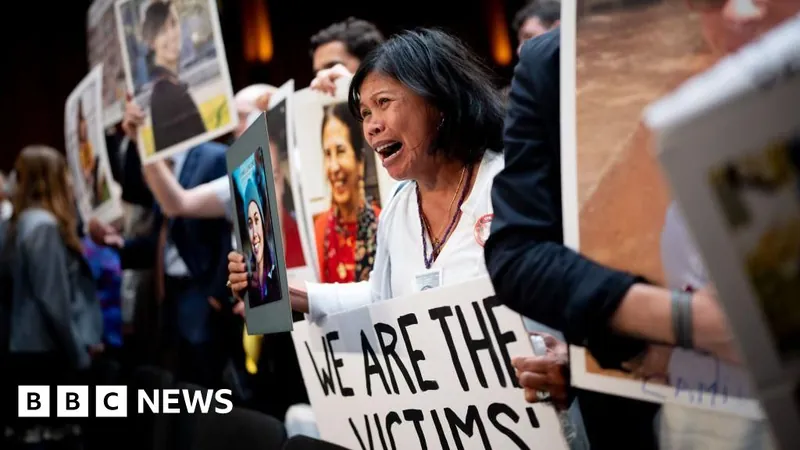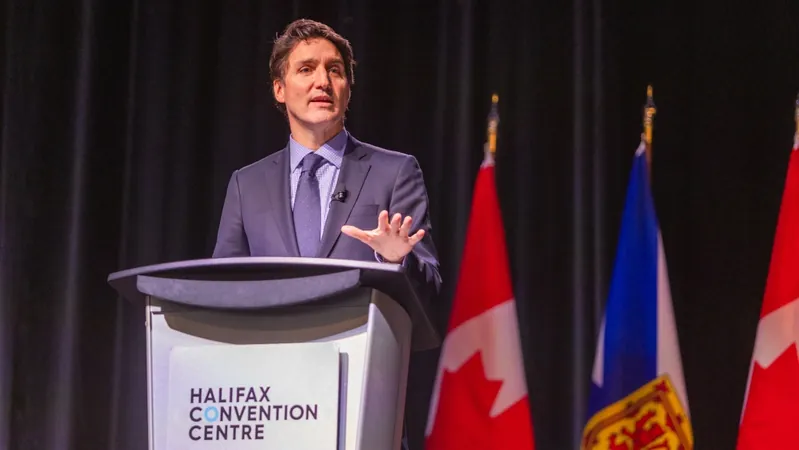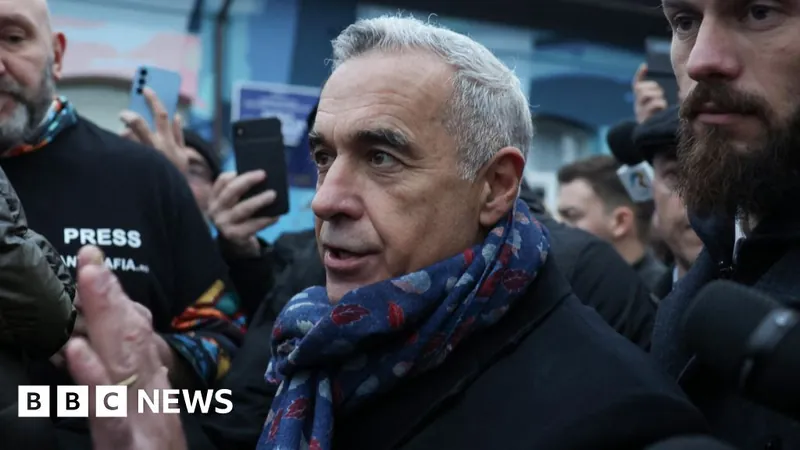
Boeing's Plea Deal Denied: A Major Setback in the Fight for Justice after 737 Max Tragedies
2024-12-06
Author: Emily
Introduction
In a shocking turn of events, a plea deal proposed by Boeing aimed at resolving the legal repercussions of two tragic 737 Max crashes has been rejected by a US district judge. This ruling raises pressing questions about Boeing's accountability and the effectiveness of oversight in the aircraft manufacturing industry.
Background of the Plea Deal
Back in July, Boeing had reached an agreement with the US government, admitting guilt to a count of criminal fraud. The deal included an independent monitor and a hefty $243 million fine. However, on Thursday, Judge Reed O'Connor determined that the agreement undermined judicial integrity, citing contradictions in the diversity requirements pertaining to the monitor's selection as a significant concern.
Reactions from Victims' Families
Families of the 346 victims who lost their lives in the 2018 and 2019 crashes reacted with relief, labeling the plea deal as a mere “get-out-of-jail-free card” for the aircraft manufacturer. “The deal didn’t hold anyone accountable for the deaths of 346 people and did nothing to protect the flying public,” remarked Ike and Susan Riffel, who tragically lost their two sons in the accidents. Their statement reflected shared sentiments among families seeking real accountability.
Judicial Concerns
Judge O'Connor expressed strong reservations about how the agreement would maintain public confidence, arguing that hiring a monitor based on diversity criteria could cloud the perception of fairness and competency in overseeing Boeing’s operations. He emphasized that the integrity of such appointments must hinge solely on qualifications, reiterating that “in a case of this magnitude, it is in the utmost interest of justice that the public is confident this monitor selection is done based solely on competency.”
Boeing's Challenges
This ruling compounds Boeing’s challenges as the company strives to bounce back from the repercussions of the 737 Max disasters, which have largely tarnished its reputation. The aircraft manufacturer has been under heightened scrutiny since these crashes, which were linked to failures in its flight control system. Adding to the turmoil, a recent incident involving a door panel detaching from an Alaska Airlines flight shortly after takeoff has reignited serious concerns about Boeing's safety protocols.
Next Steps
Following the judge's ruling, both Boeing and the Department of Justice have 30 days to forge a new resolution. The looming question remains: how will Boeing further restore public faith in its commitment to safety? The Department of Justice is currently reviewing its options, and the pressure is on for the aerospace giant to ensure that comprehensive reforms are implemented.
Advocacy for Justice
As this legal battle unfolds, families of the victims continue to advocate for justice, holding out hope that meaningful consequences will ultimately emerge from this ordeal. Their tenacity symbolizes the broader demand for rigorous accountability in corporate governance, especially in industries where public safety is paramount.









 Brasil (PT)
Brasil (PT)
 Canada (EN)
Canada (EN)
 Chile (ES)
Chile (ES)
 España (ES)
España (ES)
 France (FR)
France (FR)
 Hong Kong (EN)
Hong Kong (EN)
 Italia (IT)
Italia (IT)
 日本 (JA)
日本 (JA)
 Magyarország (HU)
Magyarország (HU)
 Norge (NO)
Norge (NO)
 Polska (PL)
Polska (PL)
 Schweiz (DE)
Schweiz (DE)
 Singapore (EN)
Singapore (EN)
 Sverige (SV)
Sverige (SV)
 Suomi (FI)
Suomi (FI)
 Türkiye (TR)
Türkiye (TR)